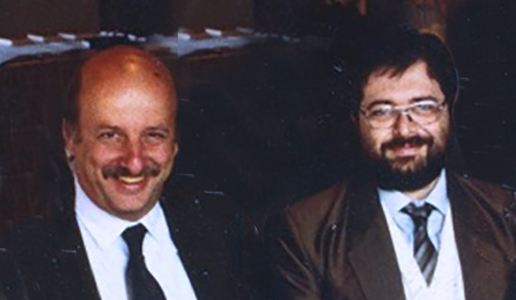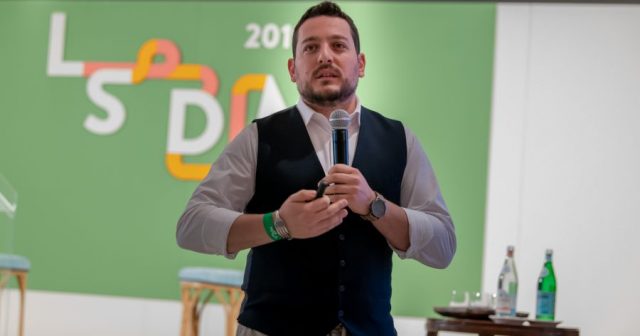Ciao Stefano

Stefano Bonilli left us five years ago and his incredible efforts to promote Italian wine and food culture should not be forgotten.
Stefano Bonilli died five years ago and I write about him here because it seems he is being forgotten and for me this is outrageous. Stefano was, as many of you know, the founder of Gambero Rosso in 1986 and ran it until September 2008. In 22 years, he simply reinvented wine and food journalism with passion and professionalism.
I worked with him throughout this experience, focusing above all on the wine sector and inventing the wine guide and the three-glasses rating, and so I knew him well. We also had a falling out and did speak to each other for six years. Then we made amends and rediscovered the affection and reciprocal respect we had for each other, as well as the fact that we still shared similar views on the world.
In the meantime, he had created Papero Giallo, Italy’s first wine and food blog, and then the Gazzetta Gastronomica. I left Gambero two years after he did, at the end of 20120, and created DoctorWine. My idea was to continue the project we began together, without the presumption of being as authoritative as Gambero Rosso but maintaining the same principles we had in the beginning. Times had changed and communicating on the web became more incisivebut the desire to offer informative journalism was, perhaps a bit romantically, the same.
Stefano wrote some very interesting articles regarding wine and he discovered and promoted young chefs. I still remember when we went together for the first time to Bottura. “They told me that there was a very promising young man in Modena, we have to go”, he told me. Stefano was a Bologna native even if he was born elsewhere. This because in 1945 Bologna was a dangerous place to be and his family took refuge in Bosco Chiesanuova. Discovering a new, young and talented chef in Emilia was for him, who was a habitué of Cantarelli, an immense satisfaction.
It is now almost impossible to read his articles and they appear to been allowed to fall into a kind of damnatio memoriae by those who could re-present them to the public but have not or do not want wish to. And so all those articles in which he, for first, realized that a wine and food revolution was taking place in Spain, with Andrià and Arzak and then others, all those reports from Japan, everything he wrote about Italian cuisine over a 30-year period, the programs he developed for the then-RaiSat Gambero Rosso Channel, including the series of interviews with Gualtiero Marchesi, which should be the subject of study in any sector university, are inevitably becoming lost and forgotten.
His wealth of ideas, lucidity and foresight are difficult to match in our small world. All I can add is that this is all very sad.

 Italiano
Italiano








